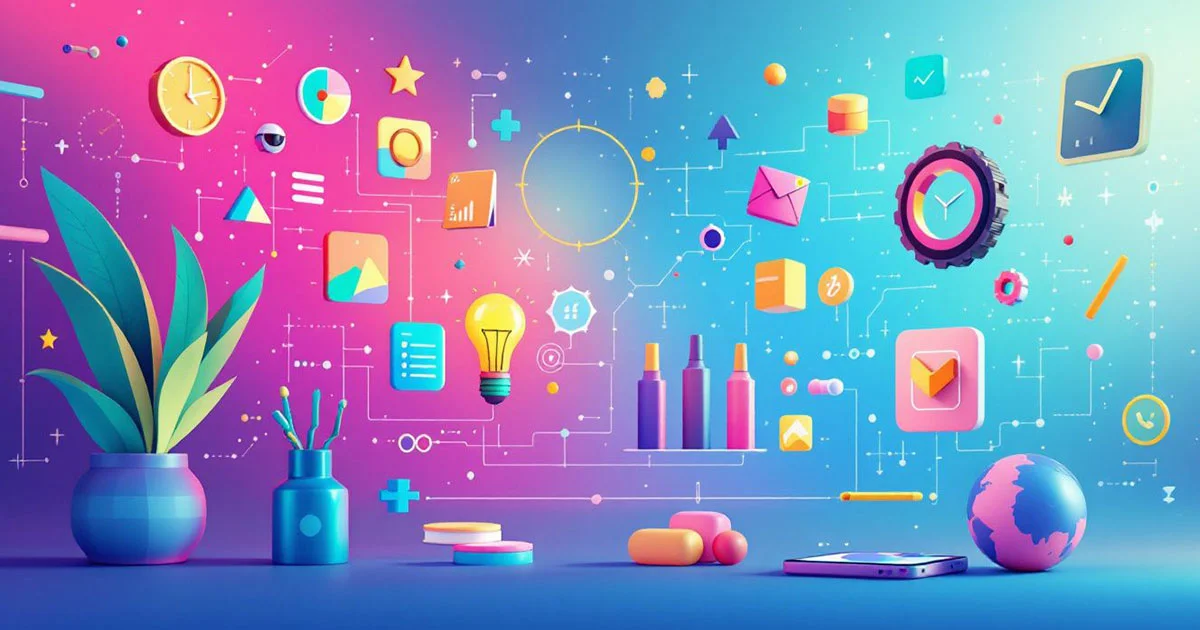Discover the ultimate guide to AI tools, as we delve into the world of artificial intelligence and its applications across different industries. From machine learning platforms to natural language processing tools, this article will equip readers with the knowledge they need to harness the power of AI for their specific needs, all delivered in a friendly and accessible tone for readers of all backgrounds.
Introduction to AI Tools
Artificial Intelligence (AI) has become an integral part of our daily lives, revolutionizing the way we work, communicate, and conduct business. From personalized recommendations on streaming platforms to virtual assistants that help us with everyday tasks, AI has permeated various aspects of our lives. In this article, we will explore the best AI tools across different categories, catering to the diverse needs of individuals and businesses.

Understanding the Basics of Artificial Intelligence
At its core, artificial intelligence refers to the simulation of human intelligence processes by machines, especially computer systems. These processes include learning, reasoning, and self-correction. AI enables machines to perform tasks that typically require human intelligence, such as visual perception, speech recognition, decision-making, and language translation.
Importance of AI Tools in Various Industries
AI tools play a crucial role in various industries, offering solutions that enhance efficiency, productivity, and decision-making. In healthcare, AI is used for disease detection and personalized treatment plans. In business intelligence, AI tools help analyze complex data sets to derive valuable insights. In marketing and sales, AI enables personalized customer experiences and targeted advertising. Understanding the significance of AI tools in different sectors is essential for leveraging their potential to the fullest.

Machine Learning Platforms
Machine learning, a subset of artificial intelligence, involves the development of algorithms that enable computers to learn from and make predictions or decisions based on data. Machine learning platforms provide the necessary infrastructure and tools for developing, training, and deploying machine learning models.
Overview of Machine Learning
Machine learning algorithms can be categorized into supervised learning, unsupervised learning, and reinforcement learning. Supervised learning involves training a model on labeled data, while unsupervised learning deals with unlabeled data. Reinforcement learning focuses on decision-making and learning from trial and error.
Top AI Tools for Machine Learning
- TensorFlow: Developed by Google, TensorFlow is an open-source machine learning framework known for its flexibility and scalability. It supports a wide range of tasks, from simple linear regression to complex deep learning models.
- PyTorch: This machine learning library is widely used for natural language processing and computer vision tasks. PyTorch offers a dynamic computational graph, making it popular among researchers and developers.
- Scikit-learn: Ideal for beginners, Scikit-learn is a user-friendly machine learning library that provides simple and efficient tools for data mining and data analysis.
Natural Language Processing (NLP) Tools
Natural Language Processing (NLP) focuses on the interaction between computers and human language. NLP tools enable machines to understand, interpret, and generate human language in a valuable way.
Exploring Natural Language Processing
NLP involves tasks such as language translation, sentiment analysis, named entity recognition, and speech recognition. These tasks are essential for applications like chatbots, language translation services, and text analysis.
Best AI Tools for NLP

- NLTK (Natural Language Toolkit): NLTK is a leading platform for building Python programs to work with human language data. It provides easy-to-use interfaces to over 50 corpora and lexical resources.
- SpaCy: Known for its speed and efficiency, SpaCy is a powerful NLP library that is designed to help build applications that process and “understand” large volumes of text.
- Gensim: Gensim is a robust NLP library that specializes in topic modeling and document similarity analysis. It is widely used for extracting semantic topics from documents.
Computer Vision Tools
Computer vision in AI enables machines to interpret and understand the visual world. It involves tasks such as image recognition, object detection, and image generation.
Understanding Computer Vision in AI
Computer vision algorithms analyze and interpret visual data from the real world, enabling machines to make decisions based on that information. This technology is used in autonomous vehicles, medical image analysis, and augmented reality applications.
Top AI Tools for Computer Vision

- OpenCV: OpenCV is a popular computer vision library that provides a comprehensive infrastructure for real-time computer vision. It supports a wide range of image processing tasks and machine learning algorithms.
- TensorFlow Object Detection API: This API allows for the training and deployment of state-of-the-art object detection models. It is widely used for tasks such as identifying and locating objects within images.
- YOLO (You Only Look Once): YOLO is an efficient real-time object detection system that can detect multiple objects in an image with impressive speed and accuracy.
AI Tools for Business Intelligence
AI plays a pivotal role in business intelligence, empowering organizations to analyze complex data sets and derive actionable insights.
Applications of AI in Business Intelligence
AI tools are used in business intelligence for tasks such as predictive analytics, data visualization, and automated reporting. These tools enable businesses to make data-driven decisions and gain a competitive edge in the market.
Best AI Tools for Business Intelligence
- Tableau: Tableau is a powerful data visualization tool that leverages AI for features such as natural language processing and smart data discovery. It enables users to create interactive and shareable dashboards.
- IBM Watson Analytics: This platform provides AI-powered analytics for data exploration, predictive analytics, and automated pattern detection. It simplifies the process of uncovering insights from complex data sets.
- Microsoft Power BI: Power BI is a business analytics tool that delivers insights throughout an organization. It utilizes AI to generate interactive reports and dashboards, making it easier for users to explore data and find meaningful patterns.
AI Tools for Healthcare
In the healthcare industry, AI tools are transforming patient care, medical imaging, and drug discovery processes.

Impact of AI Tools in Healthcare
AI tools are used for tasks such as medical image analysis, personalized treatment plans, and predictive analytics for patient outcomes. These tools contribute to improved diagnosis accuracy and the development of innovative healthcare solutions.
Top AI Tools for Healthcare Applications
- IBM Watson Health: This platform offers AI-powered solutions for healthcare providers, enabling them to analyze complex medical data, identify treatment options, and improve patient care outcomes.
- Google Health: Google’s AI tools for healthcare focus on medical imaging analysis, disease detection, and predictive analytics. These tools aim to assist healthcare professionals in making more informed decisions.
- Ada Health: Ada Health provides an AI-powered symptom assessment platform that helps individuals understand their symptoms and seek appropriate medical care. It offers personalized health guidance based on individual health profiles.
AI Tools for Marketing and Sales
AI tools have revolutionized marketing and sales strategies, enabling personalized customer experiences and data-driven decision-making.
Leveraging AI Tools in Marketing and Sales
AI tools are used for customer segmentation, personalized recommendations, and predictive lead scoring. These tools help businesses optimize their marketing and sales efforts for better engagement and conversion rates.
Best AI Tools for Marketing and Sales
- Salesforce Einstein: Salesforce Einstein is an AI-powered CRM platform that offers predictive lead scoring, personalized recommendations, and automated data analysis for sales and marketing teams.
- Adobe Sensei: Adobe Sensei leverages AI and machine learning to deliver personalized experiences across various marketing channels. It enables marketers to create targeted campaigns and optimize content for better engagement.
- HubSpot: HubSpot’s AI tools focus on marketing automation, lead management, and customer relationship management. These tools help businesses streamline their marketing and sales processes for improved efficiency.
Conclusion
The future of AI tools is promising, with continuous advancements in machine learning, natural language processing, computer vision, and business intelligence. As AI continues to evolve, it is essential for individuals and businesses to harness the power of AI tools for their diverse needs. Whether it’s improving healthcare outcomes, optimizing business processes, or enhancing customer experiences, AI tools offer a myriad of opportunities for innovation and growth. By staying informed about the best AI tools available, we can unlock the full potential of artificial intelligence and drive positive change across various industries.
